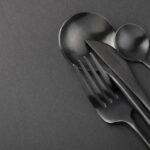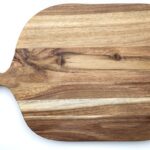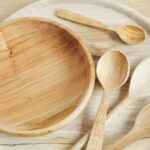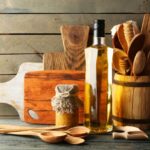Plastic accumulation in landfills has negative impacts on the environment. Plastic is resistant to decomposition and can pollute lands, groundwater, and oceans, posing a great threat to marine life. Reducing single-use plastic items is vital to reduce non-compostable waste and protect the planet from plastic pollution. Using environmentally friendly disposable cutlery instead of plastic is one of the easiest ways to promote sustainability in your everyday life and reduce your plastic footprint.
Bamboo cutlery is a perfect, eco-friendly alternative to single-use cutlery which is made from non-biodegradable materials. Bamboo flatware is produced using environmentally sustainable and renewable materials. Bamboo grows tremendously quickly and the plant does not die after harvesting.
When thrown away, bamboo utensils will degrade naturally, transforming into nutrient-rich soil and helping other plants to grow.
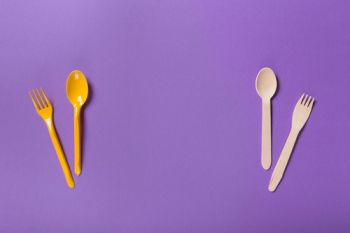
Benefits of Bamboo Cutlery
- Bamboo is suitable for traveling and is especially handy when visiting fast-food restaurants that offer only plastic disposables. Bamboo cutlery sets commonly come in a carrying case, which makes them more portable, so you can carry them with you everywhere.
- A bamboo flatware set is a perfect addition to your camping gear. It is lighter than metal silverware and fits nicely in your backpack.
- Bamboo spoons, forks, and knives are easy to put in your lunch bag for work. They also look more fashionable than plastic cutlery.
- Bamboo is an eco-friendly addition to school lunches and a great way to teach your kids to be environmentally conscious.
- Bamboo flatware is great for outdoor gatherings such as BBQs, picnics, or birthdays.
Pros
- Portable: Bamboo flatware is very lightweight and easy to put in your backpack when traveling.
- Durable: Compared to regular wood, bamboo is stronger and more durable. Bamboo cutlery is sturdy enough to handle most foods. It can be washed and reused many times, rather than thrown away.
- Aesthetically appealing: The bamboo has a smooth and attractive look which adds a natural and modern touch to any food presentation.
- Comfortable to hold. Bamboo silverware provides a secure grip and it fits well in one’s hand.
- Doesn’t affect the taste: Using metal and plastic cutlery can leave a bad taste in your mouth when consuming food, especially when eating delicately-flavored dishes. Bamboo feels better in your mouth, making the food taste better as a result.
- Heat/cold-resistant: Bamboo is a poor conductor of heat. It is more comfortable to stir the tea or coffee with a bamboo spoon than with a metal one.
Cons
- Bamboo flatware might develop splinters or cracks and it can break if you apply too much pressure.
- Bamboo knives work fine for cutting soft foods and for spreading jams or butter but they are not efficient for cutting meat.
- Bamboo cutlery is more resistant to staining than wooden utensils but it still can get stained with some foods.
- The production cost for bamboo cutlery is higher than for plastic cutlery, yet the cost can be significantly lowered by recycling and reusing.
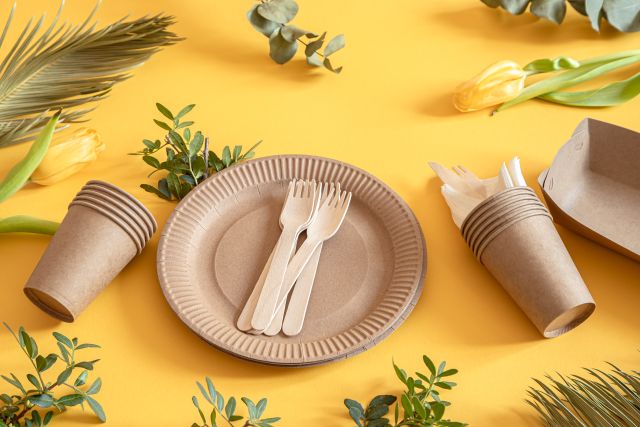
How to Wash Bamboo Cutlery
Bamboo flatware is easy to clean. If possible, clean your flatware right after use to prevent food particles from drying up. Wash by hand with warm, soapy water. Towel dry right away with a clean, dry cloth. To prolong the life of your bamboo flatware, don’t put it in the dishwasher or submerge it in water for too long.
To sanitize bamboo flatware, use a mild bleach solution (1 tablespoon of bleach per gallon of water). Rinse thoroughly with pure water when finished.
To extend their life and give them a beautiful shine, treat your bamboo utensils with food-safe mineral oil periodically. Seasoning will also prevent the bamboo from absorbing food stains or odors.
Don’t put bamboo utensils in the microwave, as over-drying can shorten their lifespan.

